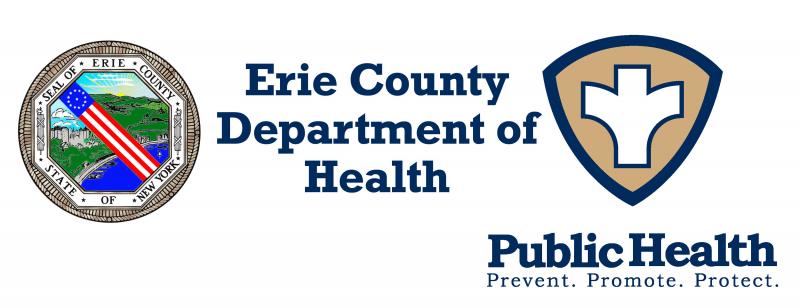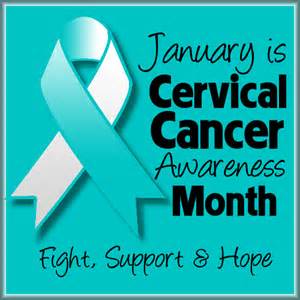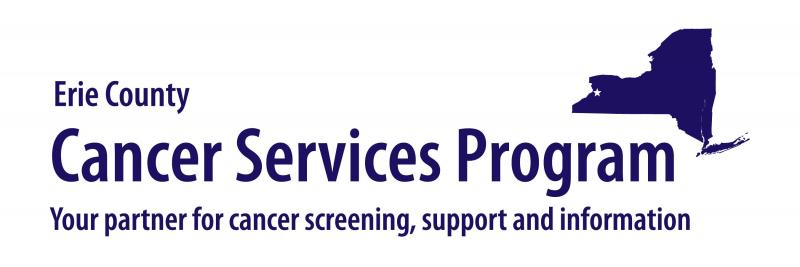Modified: January 11, 2017 12:32pm
Latest News

PRESS RELEASE
From the Office of the Commissioner of Health, Dr. Gale R. Burstein
Date: January 11, 2017
CONTACT: Mary C. St. Mary/Mary.StMary@Erie.Gov
Phone: 716.858.4941/ Mobile: 716.253.3925
Free Cervical Cancer Screening for Uninsured
Early Diagnosis of Cervical Cancer Saves Lives
ERIE COUNTY, NY— January is designated Cervical Health Awareness Month to encourage females across the country to get screened for cervical cancer and to receive the human papillomavirus vaccine (“HPV”) if they are eligible. Cervical cancer is a highly preventable and treatable cancer, thanks to human papillomavirus (“HPV”) vaccination and improved cervical cancer screening.
When females are not vaccinated nor screened regularly, either due to a lack of information or inadequate health care access, cervical cancer can still be a serious, even fatal, illness. An estimated 12,000 women each year are diagnosed with cervical cancer. Of those women, about one-third will die as a result of the cancer.
"Medical advances have put us in a remarkable position to prevent cervical cancer, but technology is only half the battle," said Erie County Commissioner of Health Dr. Gale Burstein. "It's imperative we continue efforts that not only promote greater access to health care, but to educate the public about cervical cancer and how to prevent this disease."
This year’s focus is to increase the number of eligible females receiving the HPV vaccine. HPV infection is very common and is the main cause of cervical cancer. It is estimated that at least 75% of the reproductive-age population is infected with one or more strains of genital HPV. In most cases, the virus causes no symptoms or health problems and goes away on its own when a healthy immune system clears the infection. But among 5% of women, a persistent infection occurs with high-risk HPV strains, which causes nearly all cases of cervical cancer.
The HPV vaccine can protect males and females against nine HPV strains, including the two most common high-risk cancer strains (HPV 16 and 18). For persons starting the HPV vaccine series before their 15th birthday, only two doses are required. The second HPV vaccine dose should be given six to twelve months after the first dose. Teens and young adults who start the series at ages 15 through 26 years still need three doses of HPV vaccine. Also, three doses are recommended for people with certain immunocompromising conditions aged 9 through 26 years. The HPV vaccine is recommended for males and females to protect against HPV related cancers.
“It is important for parents, pediatricians and primary care physicians to promote the HPV vaccination. Both females and males ages 11 - 26 years should be immunized with the HPV vaccine. Fewer than half of vaccine-eligible females have completed the series. Since HPV is a preventable disease that causes several types of cancer and the HPV vaccine is very safe and proven effective, increasing vaccine uptake is a priority for us," said Burstein.
Burstein continued: “The HPV vaccine can prevent cervical cancer, as well as oral (throat) cancer, other genital cancers and anal cancer. If you are a parent, talk to your child’s healthcare provider about the HPV vaccine. Unfortunately, Erie County’s HPV vaccination rate for adolescent females aged 13-17 years was only 30% in 2012. This is far below the New York State Prevention Agenda’s goals. We have a lot of work to do to increase those rates.”
Cervical cancer develops slowly, starting as a precancerous condition known as dysplasia. These abnormal cells are easily detected through a Pap test and can be treated effectively. There is also an HPV test that, when combined with a Pap test in women over age 30, can help identify women at risk for developing cervical cancer. If left undetected, dysplasia can turn into cervical cancer, which can potentially spread to the bladder, intestines, lungs and liver.
Women may not suspect cervical cancer until it has become advanced or metastasizes, a fact which underscores the importance of regular Pap tests. Women are encouraged to talk to their health care provider about recommended screening tests and their frequency. Symptoms of cervical cancer, which may not appear until the cancer is advanced, include abnormal vaginal bleeding, unusual discharge, and periods that last longer or have a heavier flow than usual and bleeding after menopause. 
For uninsured women age 40 and older, the Erie County Cancer Services Program provides access to free cervical cancer screening. To find a local program contact 716-858-2962 or visit http://www.cspwny.org for additional information and eligibility requirements. In addition, all health insurance plans participating in the New York State of Health: The Official Health Plan Marketplace, cover cervical cancer screening at no cost.
# # #
For More Information:
Erie County Department of Health

